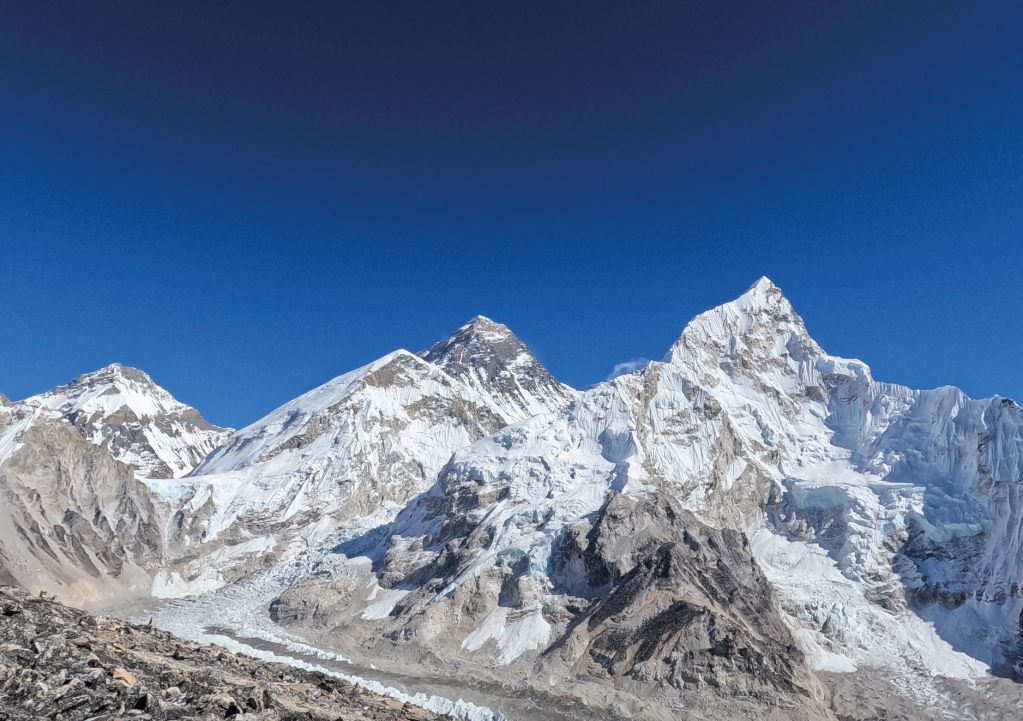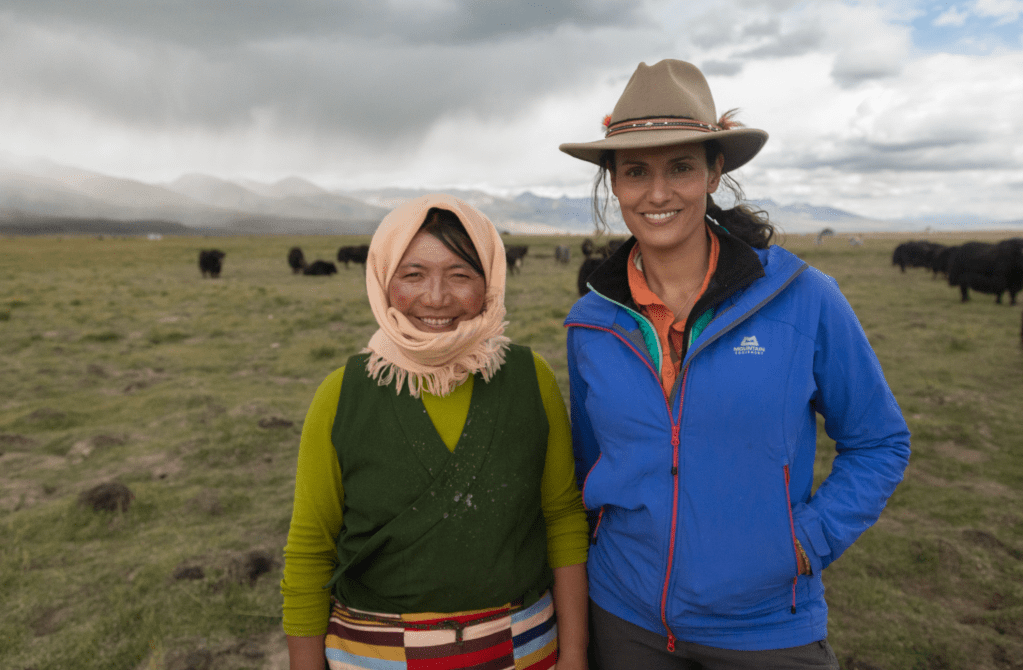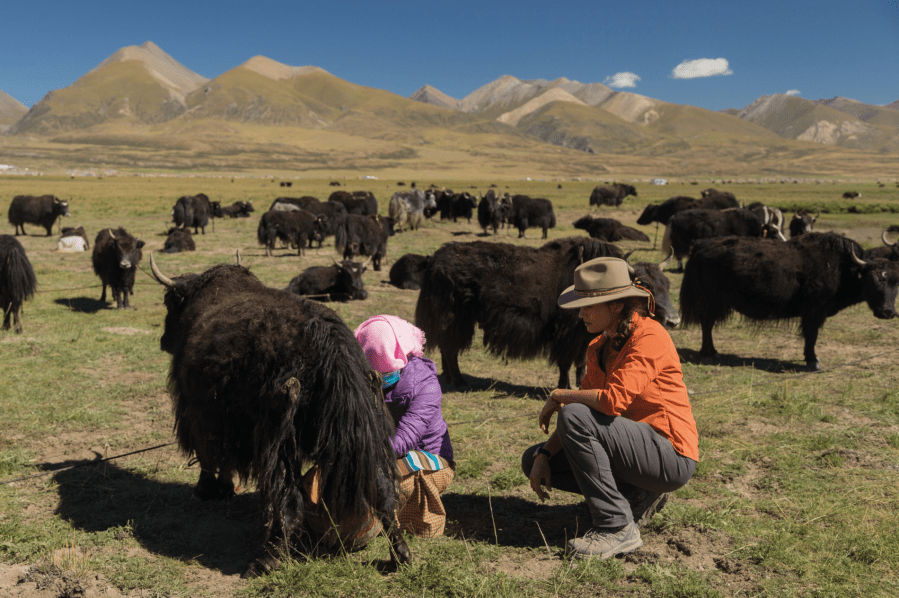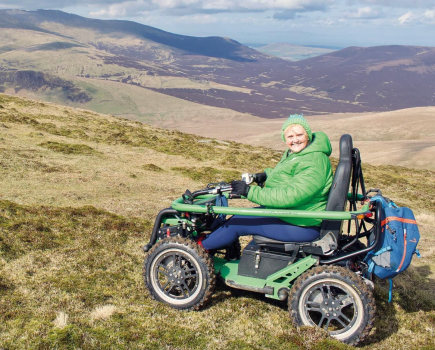Mary-Ann Ochota recalls wise words once shared by a Tibetan translator, Benpa, as she considers recent fatalities this Everest season, the abandoned tents and tanks, tonnes of litter, and allegations of misogyny and assault in high altitude mountaineering.
A few years ago I was filming a TV documentary in Tibet. The country’s high, dry plateau sits on average 4,500m above sea level and the series was all about how people survive – and thrive – on the ‘Roof of the World’. For one episode, we drove hours out of the capital city Lhasa to reach a yak herding camp on the high altitude prairie. We rumbled alongside rushing ice-blue glacial rivers, under stretched banners of Tibetan prayer flags, past outcrops of rock daubed with painted symbols for luck and wisdom. It was cold, but the sun was high and bright, the kind that burns your eyeballs. We eventually reached the herders’ camp, where I would help my host family milk and manage their yaks, collect water, churn butter and learn more about their way of life. What I lacked in skill, I would hopefully make up for with enthusiasm.
Main image: Mary-Ann learns the art of milking a yak from her host Sonam Shudruh in Damxung county, Tibet | Credit: Cloud Wang
As the third morning with my kind and patient host family dawned, I was sent out to collect yak dung that fuelled the family’s stove. I’d walk a few strides, stoop and scoop, shape the pat into a rough brick and carefully set it down again to dry, then continue to the next heap of dung.

After a successful trek to Everest Base Camp. Credit: Shutterstock
I stopped for a moment to try and drink it all in – the frosted plain, the steaming bulk of the yaks quietly grazing, the smoke rising from the stove pipe as butter tea and barley porridge were brewed. Beyond the grassy plain were the hulking snow-clad mountains of the Nyenchen Tanglha range. At a ‘mere’ 7162m, the highest point of this range sits well below Everest and the other 8000m peaks further south west.
But by gum, they were striking. ‘Gosh, look at them,’ I murmured to Benpa, our translator. ‘Ah,’ he smiled, reading my expression. ‘You want to climb them. Stand on the top and say you’ve summited? Proven something about your own skill, or effort?’ He patted my arm. ‘It’s not the Buddhist way. If you want to meet that mountain, and show her respect, you’d make a pilgrimage around the base, rather than putting your feet on her body. You climb up to make more of yourself. I walk around, and let go of myself.’ Then he wandered off for his morning tea, leaving me to contemplate my ego.
Now, of course, Benpa wasn’t speaking for all Tibetans, or all Buddhists. Many do choose to climb up, rather than walk around. There are many kind, good, humble people who climb in the highest places on the planet. But as I consider this Everest season and as I tally up this year’s mountaineering fatalities on the world’s famous summits, see the photos of the queues on Everest, watch footage of people stepping over the still-alive-but-not-for-long bodies of injured climbers, read about the tonnes of poo and litter at Everest Base Camp, abandoned tents and oxygen tanks, and grit my teeth through the next chapters of revelations of misogyny and assault in high altitude mountaineering, Benpa’s words come back to me.

Mary-Ann with Namdruh, the matriarch of a yak herding family in Damxung county, Tibet. Credit: Cloud Wang
And I ask myself, what does adventure look like, if it doesn’t have ego at the centre? How might it change my relationship with the natural world? What about the people we misuse – and I choose that word intentionally – in order to achieve our goals? It might be an underpaid and overladen porter in Pakistan, or a Lake District family who can’t afford a home because I want a holiday cottage.
Is it enough if I show respect to wildlife, leave a positive trace, take time to notice my surroundings, spend money in the local shop? Or are my actions still, fundamentally, all about me – what I want or need to be happy, fulfilled, challenged, scared, sated? I don’t know what adventure looks like, that isn’t about me.
In the aftermath of this Everest season, I suspect the journey within will be as extensive as the one on foot. I’m pretty certain it won’t lead me to a queue on the summit of Everest.







